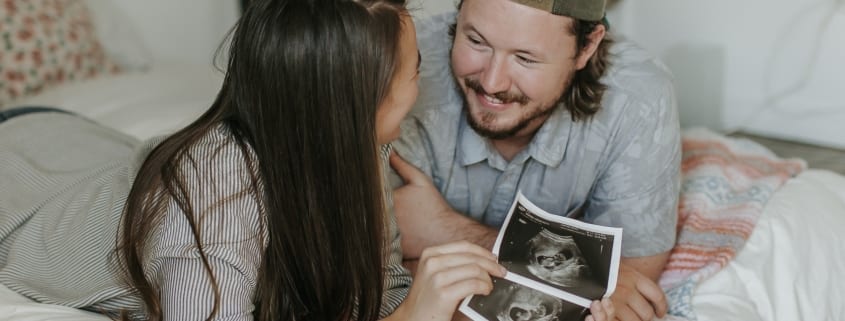Caffeine intake from coffee or other sources such as tea, energy drinks, soft drinks and chocolate has been associated with an increased risk of miscarriage according to various studies (Li J, 2015) (Lyngso J, 2017) (Oostingh EC, 2019). One study shows the rate of miscarriage doubles when a woman consumes more than 200 mg caffeine per day when compared with women who consume no caffeine (Weng X, 2008).This information would make you think that it is completely safe to consume less than 200mg caffeine per day then right? Well, the researchers also showed that 60% of the women who miscarried consumed up to 200mg caffeine per day, and although an increased risk of miscarriage was noted at this lower level, it did not reach statistical significance (Weng X, 2008). Even though this result is not considered relevant from a scientific standpoint if statistical significance is not reached, researchers know that these results can still be clinically significant (whether it could be relevant to the individual) and should still be considered in the overall discussion of safety. Another study examining the dose of caffeine that is associated with miscarriage found that risk of pregnancy loss rose by 19% for every increase in caffeine intake of 150 mg/day and by 8% for every increase in coffee intake of two cups per day (Lyngso J, 2017).

In addition, researchers have found that the caffeine a woman consumes before she falls pregnant can have an impact on miscarriage rates. Birth rates from the Nurse’s Health study examined pre-pregnancy coffee consumption of 11,072 women and found that women who consumed at least 400mg caffeine (from coffee) per day had a 20% increased risk of miscarriage compared with those who consumed no caffeine ( (Gaskins AJ, 2018). Interestingly, this study also showed an increase in miscarriages in women consuming decaffeinated coffee as well as caffeinated coffee. Researchers suggest that the reason for the increase in miscarriage may be that the women consuming the most coffee prior to conception also consumed the most during pregnancy too – more detailed research is needed to give us a clearer picture.
So how much caffeine is safe and how much is in the coffee or tea that you drink? Well, it does depend on where you get your coffee and what type of tea you drink or chocolate you consume. For energy drinks and soft drinks, the amount will be listed on the label (we recommend you avoid these completely before and during pregnancy due to the volume of sugar or artificial sweeteners included). For a double shot of coffee at your local café, you could be getting anywhere from 50mg to over 300mg of caffeine in your cup. A cup of tea tends to have less caffeine at around 50mg/cup, but if you are a heavy tea drinker, that can add up quickly. If you are a chocaholic, then consider this in your daily caffeine consumption calculations. 100mg dark chocolate contains (on average) about 45 mg caffeine, whereas milk chocolate contains about half that amount and white chocolate contains no caffeine.
It is important to remember that most miscarriages are caused by genetic issues where caffeine is likely to play little or no role in the fate of the pregnancy. Having said this, it does seem that when it comes to caffeine and pregnancy, less is better. Researchers point out that the strength of the association between caffeine intake and miscarriage is strongest in women where there is no history of miscarriage; suggesting that where chromosomal abnormalities are the cause of the miscarriage, caffeine has little to no effect, but for women who have no history of miscarriage, caffeine intake has a stronger negative effect. So for those women who do not consider themselves at risk of miscarriage, the effect of caffeine may be the most potent.
Other studies show an increase in fetal death (>20 weeks gestation) with caffeine intake greater than 300mg/d (Matijasevich A, 2006), still birth in women who drank more than 8 cups of coffee per day (Wisborg K, 2003), and a 7% increase in low birth weight with each 100mg caffeine consumed daily (Greenwood DC, 2014).
While this all sounds very scary, we know that many women have successful pregnancies when consuming caffeine. We don’t know why caffeine effects some women’s pregnancies and not others. It might be due to differences in metabolism and clearance in both the mother’s body and the foetus. Until we know more, it is best to play it safe with very low caffeine consumption prior to and during pregnancy. Furthermore, if you have had a miscarriage and are not sure why, it is important to remember that there are factors other than caffeine to consider, and talk to your doctor or health professional to determine the best course of action for a healthy pregnancy in the future.




